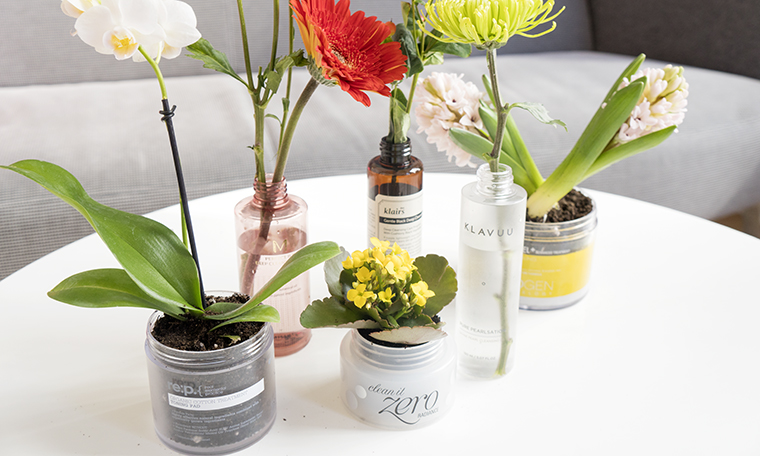Nowadays, sustainability in the agri-food and cosmetic industries has become more than a temporary trend. Circular beauty, also known as zero waste beauty, is gaining momentum each and every day. The use of waste or by-products from the food industry to create new beauty ingredients made its first appearance back in 2016 and has caught on fast ever since. On one hand, consumers are looking for more natural formulations and on the other they are requesting that producers treat nature with respect by making the most out of its resources.
With the perpetually increasing numbers of waste products generated by the food industry, modern societies are paying closer attention to the issues surrounding non-eco-friendly ingredients, environmental protection as well as preservation of ecology and biodiversity.
This is where upcycling comes in. Upcycling can be defined as the conversion of seemingly useless by-products into substances that are valuable and rich. Making full use of all components in a process reduces the demand for newly sourced raw materials and that ultimately protects the resources we have left. This kind of recycling of waste products makes an important contribution towards sustainability.
In this day and age, beauty brands are expected to show the same kind of commitment towards environmental responsibility. The upcycling approach offers cosmetic producers the opportunity to reduce waste throughout all sectors and thus to minimize their negative environmental footprint. At the same time, it presents the opportunity to position oneself as an innovator and to assume a leading role within the industry.
“Upcycling will replace recycling in 2020” says celebrity Facialist and Master Esthetician guru Angela Caglia. « It’s no longer enough to say we recycle in 2020. It’s time to take recycling to the next level—that’s where upcycling takes over. In short, upcycling is about repurposing items to extend their life so we can avoid adding things to our already overflowing landfills. »
Therefore, personal care and cosmetic brands are now joining the fight against food waste by creating repurposed beauty products with industry by-products that would otherwise go to waste. UpCircle’s entire eco-friendly beauty brand supports a circular economy with products like face and body scrubs, serums and soaps that reuse everything from coffee grounds to spent chai spices. “At UpCircle, we elevate leftover natural ingredients, bringing them back to life as beauty products your skin will love.” Other brands such as FRUU uses fruit waste to produce its lip balm range. International BeautyTech companies such as l’Oréal Paris suggest using small empty cream containers for travel instead of throwing them out or repurposing old perfume bottles as a vase for your flowers. In fact, CosmeticsDesign is holding a webinar on Circular Beauty – Sustainable sourcing on the 14th of April 4:00 pm so register for free and mark your calendars if you are interested to know more about the challenges as well as the opportunities ahead for the cosmetic industry !
You’ve probably guessed by now that Recycling and Upcycling are completely two separate, yet complementary fields. Recycling is the act of turning waste into materials that can be used to create new products whereas Upcycling is a form of “creative recycling” where instead of turning waste into new materials, you can take a product that you would otherwise throw away and give it a new use in life.
According to the Environmental Protection Agency in the UK, for every 2 tonnes of food consumed, 1 tonne goes to waste somewhere along the chain: at the production, retail or manufacturing stage so the main question remains “Why should all that good stuff go to waste?”
ODEIMI JAMES
Sources :
